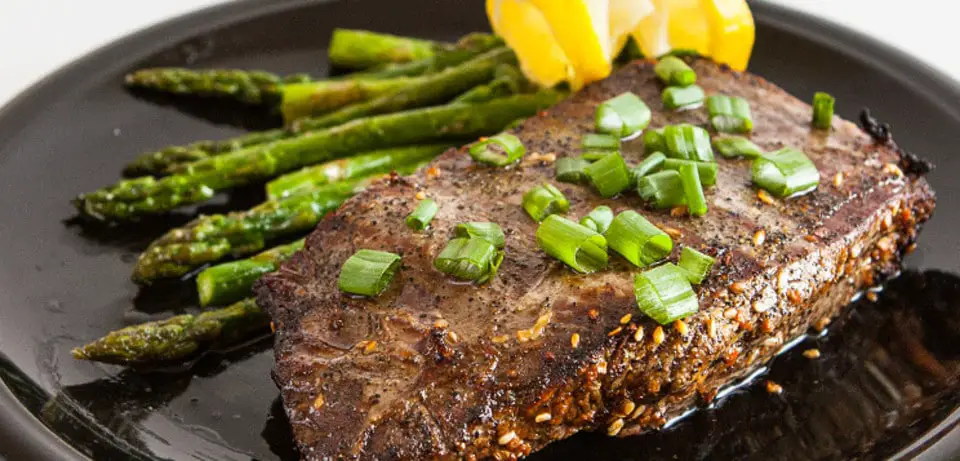From being a fervid gourmet to letting the evenings go by at the mercy of a salad, all it takes are few extra pounds and nearly the whole world suggests you to give up on every sumptuous thing one could ever think of.
I completely agree with the fact that shedding weight requires putting away many scrumptious delicacies and bonnes bouches, but does that mean all you got now to survive is some lettuce and raw veggies?
Nay! Swap your low calorie or high-carb diet with rich protein intake and lose those extra inches from your body by eating the food that’s delicious and satisfying.

Want To Know How?
Let’s take a deeper dig into what protein does to your body, and how it affects weight loss?
Proteins and Satiety
This might come out as a breaker, but opting for a high protein diet could help you in dropping your calorie intake by 400 calories per day or even more than that. Higher intake of proteins in your diet results in the secretion of more ‘appetite-reducing’ hormones like ‘cholecystokinin, GLP-1, peptide YY’ and reduce the level of hunger hormone ‘ghrelin’; this makes you feel full for a longer period of time, and consume fewer calories naturally.
Protein and Metabolism
Even digesting proteins burn a higher amount of calories compared to carbs and fats!
Yes, the high thermic effect of proteins makes your body burn 80-100 calories extra per day in its digestion. The thermic effect of proteins is 30% compared to the 10% of carbs, and 3% of fats. If we go by the listed thermic effect of the proteins, 30 out of every 100 calories you consume in a day are burned in digesting and metabolizing the food.
Protein and Muscle Loss
One of the major drawbacks of going on a low protein diet is the associated muscle loss and metabolic slowdown while losing weight. In order to look fit and lean, cutting down calories isn’t enough; an effective weight loss goal could only be achieved with sufficient protein intake and strength training.
Eating plenty of protein would not only prevent the muscle loss from your body but also increase the metabolism rate of your body, leading to healthy weight loss.
Protein Suppresses Cravings
As I mentioned before, a high protein intake reduces the level of hunger hormones and keeps your appetite satisfied for a longer period of time. This also leads to a decrease in cravings and the desire to munch at unsuitable timings. It makes really easy for a person to stick to a healthy diet and not include additional calories into his/her daily eating regime by extra munching.
Protein Foods
From the hair on the top of your head to the nail of your toe, proteins are vital for the overall strength of the body, which makes it a prime nutrient one shouldn’t discount on. Consuming a protein-rich diet provides essential amino acids (AKA the building blocks of proteins) that the body cannot produce itself. Out of the total 22 amino acids, 9 are the ones that are essential for an optimum effect on weight.
How Healthy Are They?
Being a cheaper option compared to the supplements, protein foods help you learn how to indulge into healthy food choices to sustain your body strength throughout your life. Where meat items like steak, pork, eggs, chicken, and tuna are a complete source of all the amino acids that your body can’t make, the vegetarian sources lack one or more amino acid, but could be combined together for a wholesome protein dosage.
Protein Supplements
Protein supplements are the first option that many people pick when they decide to go for strength training, weight loss or try to improve their body’s strength capacity in any way. Contrary to the foods like chicken, fish, and beef that may require more extensive planning in preparation, protein supplements like powder and shakes are a quick and convenient version of such protein filled foods. All you have to do is mix the powder with water or milk and there you have a high protein meal ready in just a few seconds.
How Healthy Are They?
Just like any other protein source, the powders or shakes provide your body a quick protein boost and ensure that your body gets an ideal amount of protein required for building muscle while losing fat. The supplements are as healthy as chicken or egg whites till the time you consume them as per the requirement of your body.
Whey Vs Casein
In terms of popularity, the two protein powders that are widely used are Whey and Casein. Often referred as the “fast” protein, whey is recommended as a part of the meal that surrounds your workout sessions; reason being it is absorbed and digested by the body as quickly as possible.
On the other hand, Casein protein is slowly digested and usually recommended when an individual needs a non-workout related protein supplement. Casein is suggested as an ideal source of protein for the last meal of the day as the body requires a little amount of protein while sleeping too for recovering/repairing.
How Much Is Adequate?
The Dietary Reference Intake to avoid protein deficiency in the body ranges from 46 grams for an average female to 56 grams for an average male. However, in order to lose weight, adding proteins at 30% of the calories, which is about 150 grams on a 2000 calorie diet has been found optimal.
Some of the high-protein foods are rich in saturated fats and their excessive consumption raise the risks of inviting cardiovascular diseases, along with high cholesterol levels, and strain on kidneys. That’s why, before diving headfirst into a protein-rich diet, consult a dietician who’s through with how the protein works and keep a keen check on the quality of proteins you are adding in your diet regime.
Keep track on your nutrition in the beginning to get expected results. With the right amount proteins and sufficient strength training, losing weight won’t be a distant goal.
Author Bio:
Ankit Gupta is a health enthusiast working for ExportersIndia.com, one of the renowned B2B portals bringing together the players in Healthcare Industry. Through his articles, he shares useful insights on health and wellness,











